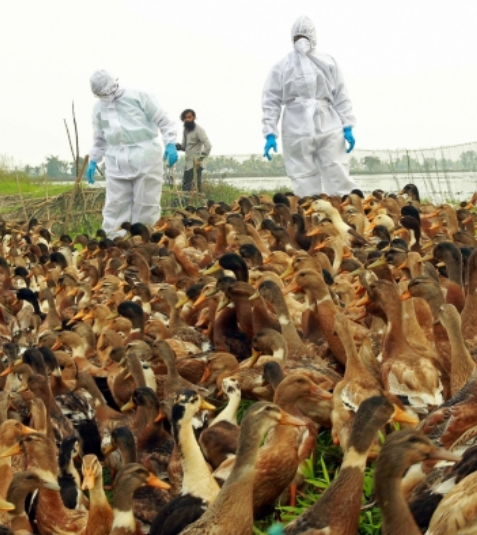New Delhi– Infectious animal diseases are increasingly spreading to new regions and species, with nearly half showing potential to jump to humans, according to a new report by the World Organisation for Animal Health (WOAH). The findings highlight rising global risks for food security, biodiversity, and future pandemics.
The annual assessment, released by WOAH, marks the first comprehensive global review of animal disease trends, vaccine availability, and antibiotic usage in animals. It reveals a dramatic rise in animal disease outbreaks, particularly avian influenza in mammals, which more than doubled from 459 outbreaks in 2023 to 1,022 in 2024 across 55 countries.
Although avian influenza still poses a low risk to humans, researchers warn that as more mammal species—including cattle, cats, and dogs—become infected, the chance of the virus adapting for mammal-to-mammal and eventually human transmission increases.
“The spread, prevalence, and impact of infectious animal diseases are shifting rapidly, presenting new challenges for agriculture, public health, and ecosystems,” said Dr. Emmanuelle Soubeyran, Director General of WOAH.
The report also flagged the growing spread of high-impact diseases such as African Swine Fever (ASF), foot-and-mouth disease (FMD), peste des petits ruminants (PPR), and avian influenza. These diseases are increasingly disrupting agricultural systems, threatening food security, and destabilizing natural habitats.
Climate change and global trade are among the primary drivers accelerating the spread and evolution of these diseases, the report notes. Despite the availability of vaccines and preventative tools, access remains uneven worldwide, leaving many regions vulnerable.
“Vaccination remains one of the most powerful tools we have—not only for protecting animal and human health but also for reducing economic losses and cutting down on antibiotic use,” Soubeyran said.
The report also emphasized the critical role of prevention in reducing the need for antimicrobial treatments, which helps limit the emergence of drug-resistant infections—a growing concern in both veterinary and human medicine.
WOAH’s findings underline the urgent need for stronger global collaboration, improved biosecurity, and greater equity in disease prevention resources to safeguard public health and global food systems. (Source: IANS)


